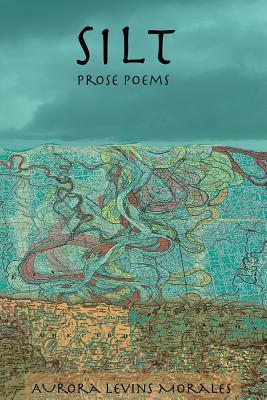In the late 1890s a US congressman argued that the United States had the right to seize Cuba because he believed it was made of silt that had washed out of the mouth of the Mississippi River which made it literally US soil. That story inspired Puerto Rican Jewish poet Aurora Levins Morales to apply for a writing residency in New Orleans, and to travel the length of the river from Minnesota to the Gulf Coast, doing "poet research."
In Silt, she follows the pathways of water across the natural and social landscapes of the Mississippi River and the Caribbean Sea, tracing the real residues of their relationship, and turning that long story into a kind of prayer, for our waters, ourplanet and our lives.
